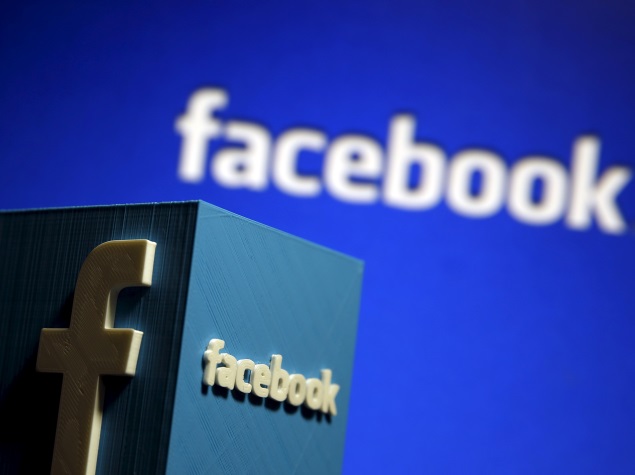- Home
- Social networking
- Social networking News
- Facebook Earns 51 Percent of Ad Revenue Overseas
Facebook Earns 51 Percent of Ad Revenue Overseas

While Facebook has reported regional growth in percentage terms, this is the first time it has detailed ad sales outside the United States and Canada as a percent of worldwide sales.
Like the advertisers it courts, the world's largest social media platform looks at international markets for growth.
"The next 1 billion consumers are going to come from these countries," said Carolyn Everson, vice president, global marketing solutions at Facebook.
Total advertising revenue for the quarter increased 46 percent to $3.3 billion, the vast majority of Facebook's $3.5 billion in quarterly revenue. Fifty-one percent of total ad revenue would be about $1.7 billion for international markets. International advertising revenue rose 36 percent from a year earlier, Facebook said.
While Europe is growing slower than the United States, the Asia Pacific region is ahead and a focus for Facebook.
By comparison, Google said that 57 percent of its revenue was from international markets in the first quarter, although it did not break out ad revenue specifically.
Mobile advertising represents more than 70 percent of Facebook's total ad revenue, and mobile is particularly strong and attractive to advertisers in emerging markets, Everson said.
Facebook is benefiting from exporters in China trying to reach people outside its country and from an influx of venture capital funding into India, giving start-ups funds for advertising.
Chinese businesses are getting more sophisticated about promoting their brands, said Dan Neary, vice president of Facebook's Asia Pacific region. "Increasingly manufactures are becoming savvy marketers in their own right," he said.
While Facebook has offices in Hong Kong, Everson said there is "no news to share" on further expansion in China.
In India, e-commerce startups are exploding and many are using Facebook's advertising platform to reach new consumers, Neary said.
The company has also initiated specific methods tailored to the country including optimising video and pictures for slower connections in India, where an ad product called "missed call" also helps customers avoid phone call charges.
Many people in India dial a friend and hang up to send a signal without incurring charges.
Facebook incorporated this system into its ads. A person can place a "missed call" by clicking on a mobile ad from Facebook and receive a return call with information, for example the score of a cricket game, sponsored by a brand.
Facebook also plans to capitalize on the visual images, specifically photography and videos, that are being embraced by younger audiences across the world. Instagram, the popular photo app, announced on June 2 it is opening up its platform to all types of businesses, not just hand-selected brands and will begin rolling out more specific targeting capability globally this year.
© Thomson Reuters 2015
Catch the latest from the Consumer Electronics Show on Gadgets 360, at our CES 2026 hub.
Related Stories
- Samsung Galaxy Unpacked 2025
- ChatGPT
- Redmi Note 14 Pro+
- iPhone 16
- Apple Vision Pro
- Oneplus 12
- OnePlus Nord CE 3 Lite 5G
- iPhone 13
- Xiaomi 14 Pro
- Oppo Find N3
- Tecno Spark Go (2023)
- Realme V30
- Best Phones Under 25000
- Samsung Galaxy S24 Series
- Cryptocurrency
- iQoo 12
- Samsung Galaxy S24 Ultra
- Giottus
- Samsung Galaxy Z Flip 5
- Apple 'Scary Fast'
- Housefull 5
- GoPro Hero 12 Black Review
- Invincible Season 2
- JioGlass
- HD Ready TV
- Laptop Under 50000
- Smartwatch Under 10000
- Latest Mobile Phones
- Compare Phones
- Honor Magic 8 RSR Porsche Design
- Honor Magic 8 Pro Air
- Infinix Note Edge
- Lava Blaze Duo 3
- Tecno Spark Go 3
- iQOO Z11 Turbo
- OPPO A6c
- Samsung Galaxy A07 5G
- Lenovo Yoga Slim 7x (2025)
- Lenovo Yoga Slim 7a
- Lenovo Idea Tab Plus
- Realme Pad 3
- Moto Watch
- Garmin Quatix 8 Pro
- Haier H5E Series
- Acerpure Nitro Z Series 100-inch QLED TV
- Asus ROG Ally
- Nintendo Switch Lite
- Haier 1.6 Ton 5 Star Inverter Split AC (HSU19G-MZAID5BN-INV)
- Haier 1.6 Ton 5 Star Inverter Split AC (HSU19G-MZAIM5BN-INV)







![[Sponsored] Haier C90 OLED TV | Dolby Vision IQ, 144Hz OLED and Google TV in Action](https://www.gadgets360.com/static/mobile/images/spacer.png)









